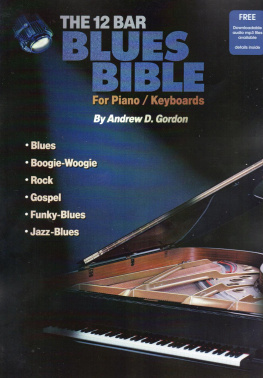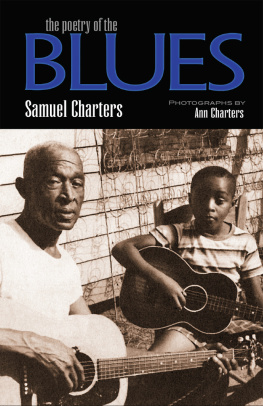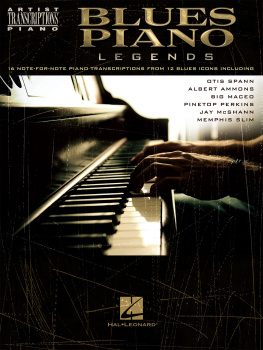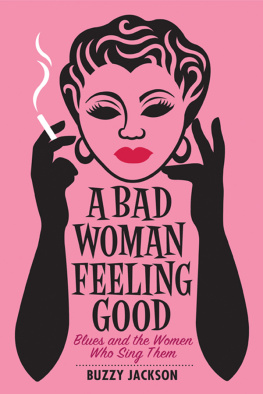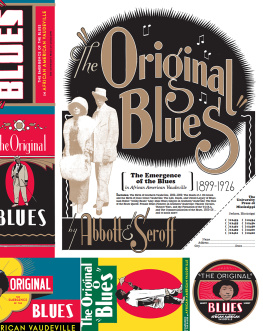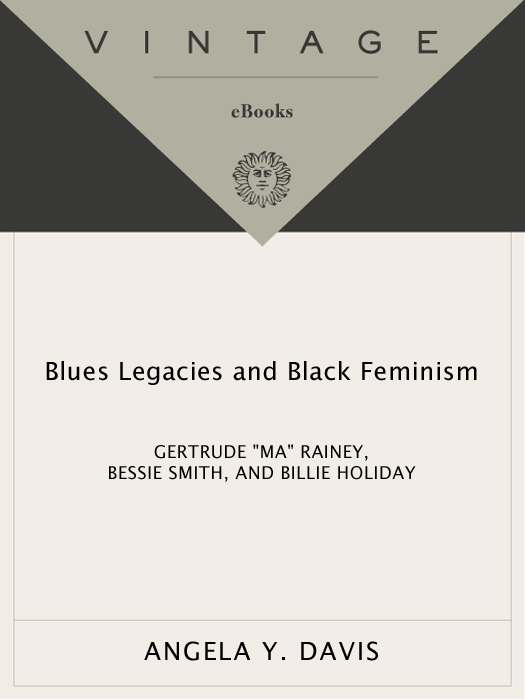Acclaim for ANGELA DAVISs
Blues Legacies and Black Feminism
A masterful work. Daviss book is the first to explore race and class ideologies as they were cast by a famed trio of poor, black blueswomen during the 1920s, 30s, and 40s. [Its] impassioned passages on Lady Day will do much to change public perceptions. Davis has done her sisters proud.
San Francisco Chronicle
Meticulously researched accessible. Daviss book at last gives Rainey, Smith and Holiday a place in the American canon on a par with such giants as Langston Hughes and Zora Neale Hurston.
San Jose Mercury News
A brilliant analysis of early womens blues. She recovers the integral role played by poor black women in the development of an American esthetic.
Globe and Mail (Toronto)
Beautiful her most heartfelt writing since Soul and Soledad nearly thirty years ago.
Fort Worth Morning Star-Telegram
Angela Daviss revolutionary spirit is still strong, still with us, thank goodness! With amazing detail and analysis, David uncovers repressed histories of class struggle in our collective unconsciousness and leads us to discover and celebrate, through these artists performances and lives, their unique contributions to a world often at odds with middle-class American values. Daviss loving transcription of the lyrics is a true gift.
The Virginian-Pilot
Provocative a lasting contribution.
The Seattle Times
An important work that gives a fresh reading of the blues.
Ebony
Just as blues singers often transformed the lyrics they were given, Davis deftly transforms the insights of Herbert Marcuse to serve the purpose of her study. Bessie Smith, writes Davis, communicated critical social meanings across racial and class boundaries. Daviss examination of the blues will have the same effect.
Newark Star-Ledger
Compelling and insightful. Davis treads new paths deep into blues territory.
Washington City Paper
Davis has an ear fine-tuned to decipher the smartass irony, the playfully twisted delivery, or the deep soul cry that lies beyond the lyrics.
San Francisco Bay Guardian
A passionate and revelatory look at the role of music in race, popular culture, and American social values.
Black Media News
Astounding. The most significant social analysis of the blues in decades subtle, nuanced, complex, wise, yet simple, obvious and fun. Perhaps the best book ever written about the blues.
Appalachian Journal
Fascinating. This engaging book is of profound interest.
Library Journal
An invaluable piece of research.
Southern Voice (Atlanta)
Persuasive and compelling. A nuanced analysis of the cultural matrix that gave rise to the blues.
The Philadelphia Inquirer
An important work of cultural history.
Quarterly Black Review of Books
Amazing lyrical. [Davis shows] that not only were their songs bluesy but political, providing models of folks who were in charge yet cognizant of their race, class, culture, sexuality and willing to stretch the boundaries to which they had been relegated in society.
San Francisco Bay Times
ANGELA Y. DAVIS
Blues Legacies and Black Feminism
Angela Davis is the editor of If They Come in the Morning: Voices of Resistance and the author of Angela Davis: An Autobiography; Women, Race, and Class; and Women, Culture, and Politics. She is Professor of History of Consciousness at the University of California, Santa Cruz.
Also by ANGELA Y. DAVIS
Angela Davis: An Autobiography
If They Come in the Morning: Voices of Resistance
Women, Culture, and Politics
Women, Race, and Class
FIRST VINTAGE BOOKS EDITION, FEBRUARY 1999
Copyright 1998 by Angela Y. Davis
All rights reserved under International and Pan-American Copyright Conventions.
Published in the United States by Vintage Books, a division of
Random House, Inc., New York, and simultaneously in Canada
by Random House of Canada Limited, Toronto.
Originally published in hardcover in the United States by Pantheon Books, a division
of Random House, Inc., New York, in 1998.
Vintage Books and colophon are registered trademarks of Random House, Inc.
Permissions acknowledgments are on pages .
The Library of Congress has cataloged the Pantheon edition as follows:
Davis, Angela Yvonne, 1944
Blues legacies and black feminism: Gertrude Ma Rainey, Bessie
Smith, and Billie Holiday / Angela Y. Davis.
p. cm.
1. Blues (Music)History and criticism. 2. Blues (Music)Texts.
3. Feminism and musicUnited States. 4. Women blues musicians
United States. 5. Afro-American women. 6. Rainey, Ma, 18861938.
7. Smith, Bessie, 1898?1937. 8. Holiday, Billie, 19151959.
I. Title. ML3521.D355 1998
782.421643082dc21 97-33021
eISBN: 978-0-307-57444-2
www.randomhouse.com
v3.1
IN LOVING MEMORY
OF KENDRA AND FRANKLIN ALEXANDER
CONTENTS
I USED TO BE YOUR SWEET MAMA
I DEOLOGY , S EXUALITY, AND D OMESTICITY
MAMAS GOT THE BLUES
R IVALS , G IRLFRIENDS, AND A DVISORS
HERE COME MY TRAIN
T RAVELING T HEMES AND W OMENS B LUES
BLAME IT ON THE BLUES
B ESSIE S MITH , G ERTRUDE M A R AINEY, AND THE P OLITICS OF Bl UES P ROTEST
PREACHING THE BLUES
S PIRITUALITY AND S ELF-CONSCIOUSNESS
UP IN HARLEM EVERY SATURDAY NIGHT
B LUES AND THE B LACK A ESTHETIC
WHEN A WOMAN LOVES A MAN
S OCIAL I MPLICATIONS OF B ILLIE H OLIDAYS L OVE S ONGS
STRANGE FRUIT
M USIC AND S OCIAL C ONSCIOUSNESS
L YRICS TO S ONGS R ECORDED BY
GERTRUDE MA RAINEY
L YRICS TO S ONGS R ECORDED BY
BESSIE SMITH
ACKNOWLEDGMENTS
It is both a rewarding and a daunting task to reflect at the end of a project such as this one upon the many people who have lent their time, energy, and spirits to assist in its completion. As thankful as I am to the following individuals and institutions for their invaluable contributions, it is not really possible for me to convey here the full impact each has had upon this work as a whole. I therefore trust all those I name here to know that my gratitude extends far beyond these few paragraphs of thanks, and I ask forgiveness of anyone I may have overlooked.
First, I want to thank my mother, Sallye Davis, and my nephew Ben Davis for enabling me to live and work under one roof.
At the earliest stages of this project, Kipp Harvey assisted me with the challenging and thrilling process of transcribing womens blues lyrics. At different stages, Roberta Goodman and Vicki Smith served as my research assistants. Vicki reconstructed the footnotes after a computer crash wiped them out, handling a latter-twentieth-century crisis with skill and grace.
I have benefited greatly from the insights of my close friends Terri Lynne Carrington, Faith Nolan, and Dianne Reeves on music and performance history. My exchanges with Edward Guerrero, whom I interviewed about the blues on my radio program on KPFA some years ago, helped to shape my analysis of the blues aesthetic. My long-time friend and comrade Charlene Mitchell, who has a great love for Bessie Smith, provided important inspiration and vital resources from her record collection.



